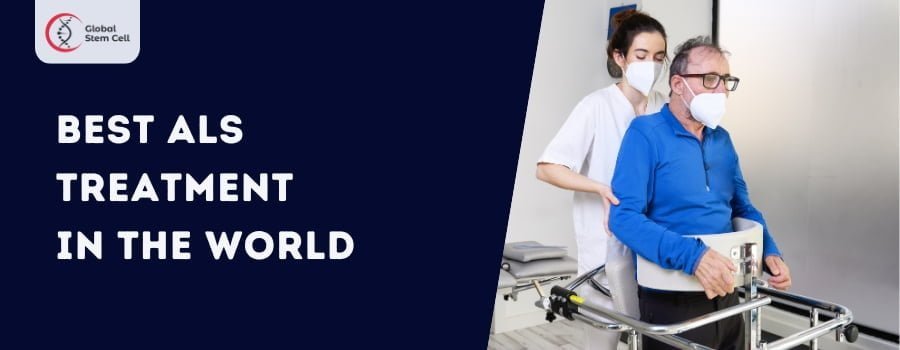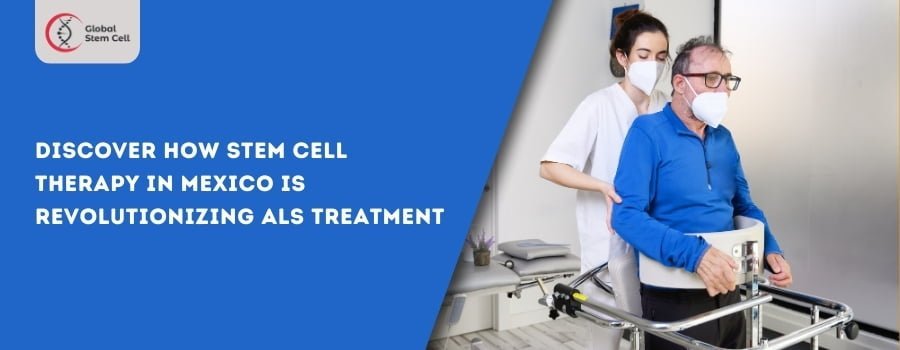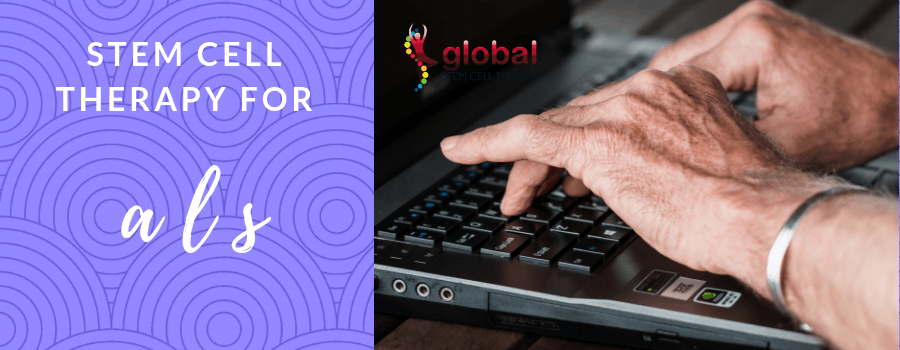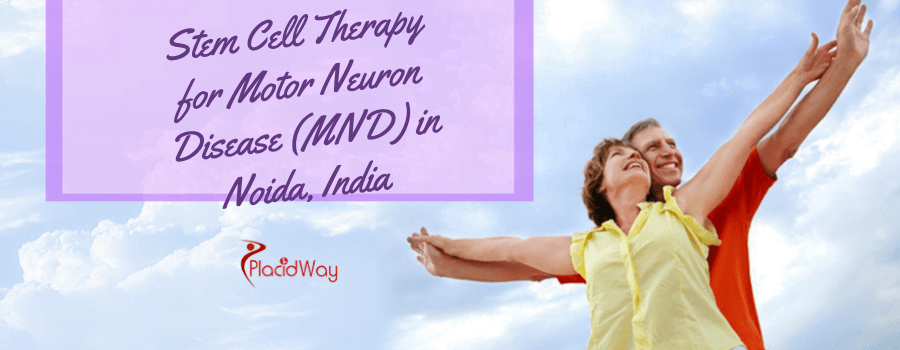
Finding the best ALS treatment in the world is a crucial quest for many patients and their families. As we strive for breakthroughs in medicine, regenerative medicine emerges as a beacon of hope. This cutting-edge approach harnesses the body’s natural healing processes, aiming to restore function and improve quality of life for those battling ALS.
With innovative therapies like stem cell treatment and personalized cellular therapies, regenerative medicine offers a promising avenue that could revolutionize ALS care. At the forefront of this revolution, our clinic is dedicated to providing state-of-the-art regenerative treatments, combining scientific excellence with compassionate care to deliver the best possible outcomes for our patients.
Table of Content
How Regenerative Medicine helps in ALS treatment?
Regenerative medicine offers a novel approach to treating ALS by focusing on repairing and regenerating damaged tissues and cells. Here’s how it helps:
- Stem Cell Therapy: Stem cells have the unique ability to develop into various types of cells, including motor neurons. In ALS, where motor neurons deteriorate, stem cell therapy can potentially replace these damaged cells, slowing disease progression and restoring some lost function.
- Neuroprotection: Regenerative medicine techniques can provide neuroprotective effects, helping to shield existing motor neurons from further damage. This can be achieved through the delivery of growth factors and other supportive molecules that promote cell survival and health.
- Reducing Inflammation: ALS is often accompanied by chronic inflammation, which can exacerbate neuron damage. Regenerative treatments can modulate the immune response, reducing inflammation and creating a more favorable environment for neural repair.
- Improving Muscle Function: Beyond protecting neurons, regenerative medicine can also help repair and strengthen the muscles affected by ALS. Treatments such as platelet-rich plasma (PRP) injections can promote muscle healing and enhance function.
- Enhancing Quality of Life: By addressing the underlying cellular damage and promoting tissue repair, regenerative medicine can help alleviate some of the symptoms of ALS, potentially improving patients’ mobility, strength, and overall quality of life.
Best ALS Treatment Clinics in the world
When seeking the best ALS clinics in the world, it is essential to find centers that specialize in advanced and innovative treatments, particularly in the field of regenerative medicine. Here are some of the top ALS clinics globally, renowned for their expertise and cutting-edge therapies:
Vega Stem Cell Clinic in Bangkok, Thailand: Vega Stem Cell Clinic is a premier destination for patients seeking regenerative therapies for ALS. With a team of highly skilled medical professionals, the clinic offers state-of-the-art stem cell treatments designed to repair and regenerate damaged motor neurons. Vega is known for its personalized treatment plans and commitment to patient care, making it a leading choice for those battling ALS.
Kobinia Med in Austria: Situated in the heart of Europe, Kobinia Med provides advanced ALS treatments using the latest in stem cell and regenerative medicine research. The clinic boasts a multidisciplinary team of specialists who work collaboratively to develop tailored treatment protocols aimed at slowing disease progression and enhancing patients’ quality of life.
Stem Health in Guadalajara, Mexico: Stem Health in Guadalajara is renowned for its innovative approach to ALS treatment, focusing on the use of autologous stem cell therapies. The clinic is dedicated to providing accessible and effective treatments, leveraging cutting-edge technology and extensive research to offer hope and improved outcomes for ALS patients.
Kyron Stem Cells in Colombia: Kyron Stem Cells is a leading clinic in Colombia specializing in regenerative medicine for neurodegenerative diseases like ALS. The clinic’s comprehensive treatment programs include stem cell therapy, neuroprotection strategies, and personalized care plans, aiming to restore function and improve patients’ lives through groundbreaking medical advancements.
StemRx Bioscience Solutions in Mumbai, India: StemRx Bioscience Solutions is at the forefront of regenerative medicine in India, offering innovative treatments for ALS. The clinic’s approach combines stem cell therapy with supportive treatments to promote neuronal repair and reduce inflammation. StemRx is committed to delivering high-quality, patient-centric care with a focus on achieving the best possible outcomes.
How much does Regenerative Medicine treatment for ALS Cost?
The cost of regenerative medicine treatment for ALS, specifically stem cell therapy, can vary widely depending on several factors, including:
- Type of stem cells: Different types of stem cells (e.g., umbilical cord, bone marrow) may have different costs.
- Number of cells administered: The quantity of stem cells used in the treatment can influence the overall cost.
- Source and quality of cells: The origin of the stem cells (e.g., ethically sourced, regulated) and their quality can affect pricing.
- Location of the laboratory: The location where the cells are processed and expanded can impact the cost.
- Clinic and physician fees: The fees charged by the clinic and physician administering the treatment will vary.
- Additional therapies: Some clinics may offer additional therapies or medications alongside stem cell treatment, which can add to the overall cost.
In general, stem cell therapy for ALS can range anywhere from $5,000 to $50,000 USD or more. It’s important to consult with reputable clinics and physicians to get accurate pricing information based on your specific case and treatment plan.
Benefits of Regenerative Medicine Treatment for ALS
Regenerative medicine offers several potential benefits for treating Amyotrophic Lateral Sclerosis (ALS), providing hope for improved outcomes and quality of life for patients. Here are some of the key benefits:
- Slowing Disease Progression: Regenerative medicine treatments, such as stem cell therapy, can potentially slow the progression of ALS by protecting and repairing damaged motor neurons. This can help preserve muscle function and delay the onset of more severe symptoms.
- Neuroprotection: Regenerative therapies often include the administration of neuroprotective factors, which can help shield existing neurons from further damage. This can stabilize the patient’s condition and prevent rapid deterioration.
- Cell Replacement and Repair: Stem cells have the ability to differentiate into various cell types, including motor neurons. By replacing damaged neurons, regenerative treatments can help restore some of the lost functions, potentially improving mobility and muscle strength.
- Reducing Inflammation: ALS is often accompanied by chronic inflammation, which exacerbates neuronal damage. Regenerative medicine can modulate the immune response, reducing inflammation and creating a more favorable environment for neuronal repair.
- Improving Muscle Function: Beyond protecting neurons, regenerative medicine can also help repair and strengthen muscles affected by ALS. Techniques such as platelet-rich plasma (PRP) injections promote muscle healing and enhance overall function.
- Enhanced Quality of Life: By addressing the underlying cellular damage and promoting tissue repair, regenerative medicine can help alleviate some of the symptoms of ALS, leading to an improved quality of life. Patients may experience better mobility, reduced pain, and increased independence.
Regenerative Medicine Treatment for ALS Success Story
FAQs about Regenerative Medicine Treatment for ALS
What is regenerative medicine?
Regenerative medicine is a branch of medical science focused on repairing, replacing, or regenerating damaged tissues and organs. It often involves the use of stem cells, growth factors, and other biologically active molecules to promote healing and restore function.
How does regenerative medicine help in treating ALS?
Regenerative medicine helps in treating ALS by:
- Replacing damaged motor neurons with healthy ones through stem cell therapy.
- Providing neuroprotective effects to shield existing neurons from further damage.
- Reducing inflammation and modulating the immune response to create a favorable environment for neuronal repair.
- Enhancing muscle function and improving overall quality of life.
What types of regenerative treatments are available for ALS?
The primary regenerative treatments for ALS include:
- Stem cell therapy (using mesenchymal stem cells, neural stem cells, etc.)
- Platelet-rich plasma (PRP) therapy
- Gene therapy
- Administration of growth factors and other biologically active molecules
Are regenerative medicine treatments for ALS safe?
Regenerative medicine treatments are generally considered safe, especially when using autologous cells (cells derived from the patient’s own body). However, as with any medical treatment, there are potential risks and side effects, which should be discussed with a qualified healthcare provider.
What is the success rate of regenerative medicine treatments for ALS?
The success rate can vary depending on the type of treatment, the stage of the disease, and the individual patient. While regenerative medicine shows promise in slowing disease progression and improving symptoms, it is not yet a cure for ALS. Ongoing research and clinical trials are aimed at better understanding and improving these treatments.
How long does it take to see results from regenerative medicine treatments?
The time frame for seeing results can vary. Some patients may notice improvements within a few months, while others may take longer. The effects can depend on the specific treatment, the patient’s condition, and the body’s response to therapy.
Are regenerative medicine treatments for ALS covered by insurance?
Most regenerative medicine treatments for ALS are considered experimental and may not be covered by insurance. Patients should check with their insurance provider and discuss financing options with the treatment clinic.
What are the potential side effects of regenerative medicine treatments for ALS?
Potential side effects can include:
- Pain or discomfort at the injection site
- Infection
- Immune reactions
- Unwanted tissue growth However, these side effects are generally rare and manageable. It is important to discuss potential risks with the treatment provider.
Discover how regenerative medicine can transform the lives of ALS patients. Contact us today to learn more about our cutting-edge treatments and schedule your consultation. Start your journey towards improved health and quality of life now!





